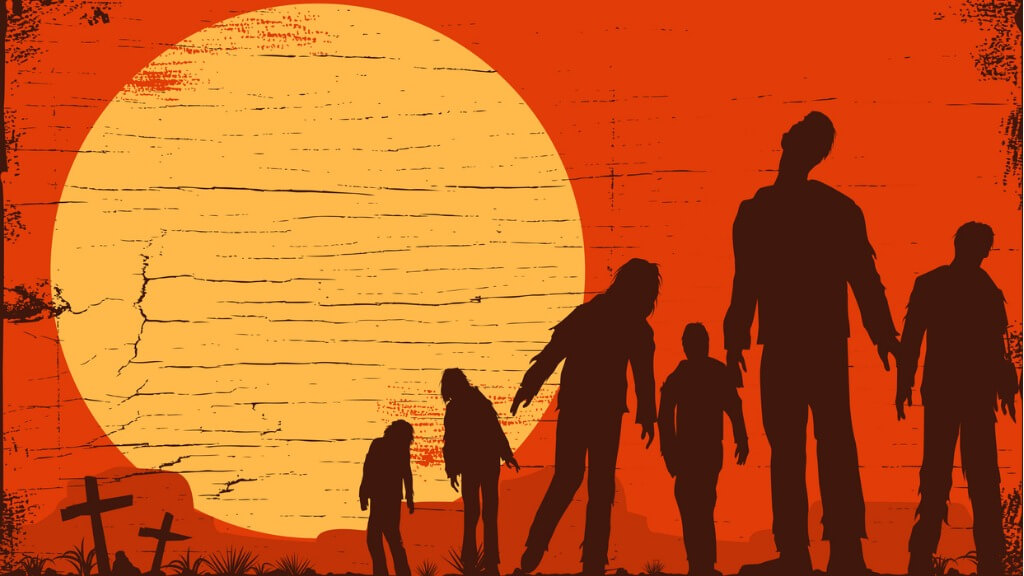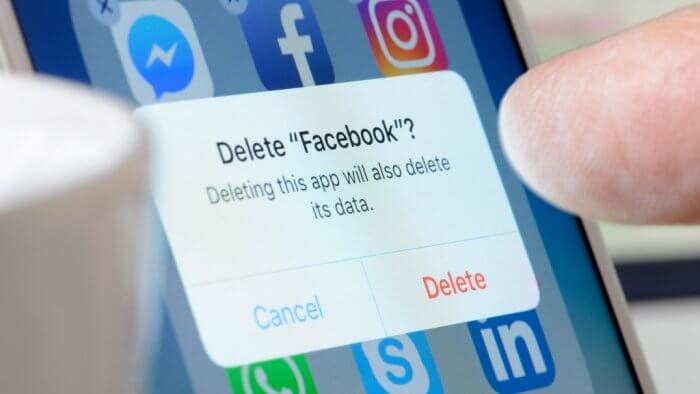Preparing For The Social Media Apocalypse
Are we witnessing the end of Facebook and co - and if so, what's next?

A few months ago, the idea of a world without Facebook seemed positively unthinkable. Now, following the scandal surrounding Cambridge Analytica, rumours of Android data harvesting and the wider #DeleteFacebook movement, the notion of a Facebookless future seems not only plausible, but positively desirable.
While many social media pundits are already viewing this movement as little more than a blip in Facebook’s history, beneath the surface, many of us are starting to notice a genuine dissatisfaction with the way these platforms treat their users and the way they make those users feel.
As many as one in five social media users say that these platforms make them unhappy, with Facebook in particular being viewed as a key source of anxiety, social envy and isolation. The days of social media being – to use Myspace’s term – ‘a place for friends’, are over.
Now, Facebook is awash with cynicism, sponsorship and anti-social behaviour, all of which has led to an inevitable exodus away from the platform. Even before the Cambridge Analytica scandal, younger users of Facebook were leaving in droves, with nearly 100,000 people Googling ‘how to delete Facebook’ every month.
And it’s not just Facebook that’s been losing its loyal fanbase. Following serious accusations of trolling, bots and cyberbullying, Twitter is now on the verge of losing 330,000 users every month.
Even Snapchat, which was recently considered the golden child of the social media landscape, is struggling with an increasingly diluted purpose, below average quarterly reports, and a string of celebrity-driven deactivations.
So what’s happening? Is this really the social media end times?
In the lab
For the last few months, I’ve been working as part of the Wildfire Labs team to develop a report on why this trend is occurring and what businesses and brands can do to maintain the relationships they’ve developed on these platforms over the last fifteen years.
Our key conclusion has been that, while we are seeing a drastic decline in some of the most popular social platforms, the merits of technologies that allow people to socialise in this way are never going to go away. What we do expect to change however, is the manner in which these platforms allow us to communicate.

To tap or not to tap?
Personally, I believe that users are not necessarily giving up on Facebook, but instead simply don’t see the platform as serving the functions and purposes that it originally promised.
What was a way to share personal pictures and keep in touch with friends and family is now a diluted mess of political opinions, sponsored videos and minion memes. The result has been an audience shift in two directions.
A change in influence
The first of these shifts has been a move back towards more traditional news sources. Despite the rise of ‘fake news’, research from the Reuters Institute for the Study of Journalism shows that it is mostly online and social media that has suffered a decline in consumer trust.
With less than a quarter of us now believing that social media is capable of separating fact from fiction, more and more people are turning back to traditional news outlets and broadcast institutions to help them decipher the truth.
The second movement has been a fundamental change in the way that people share online. Having lost trust in the notion of public sharing, ever more people are turning inwards and choosing to share information through private, closed-communication channels.
Where once, people would post their updates on Facebook, now they are far more likely to communicate via Facebook Messenger or with a close-knit circle of friends and family in a private WhatsApp group.
For brands that have spent the last fifteen years building trusted blogs and developing their social media presence, these two trends may appear a worrying shift in consumer behaviour. In reality however, they could in fact pose a potential opportunity.
Rather than relying on the direct communication of Facebook and Twitter, this shift will force marketers and business leaders to think strategically about the audiences they are attempting to reach.

The audience is still there, but how you should approach them is changing
While trust in social media may be collapsing, consumers are quickly filling the void with recommendations and advice from friends, family and the mainstream media.
This presents a golden opportunity for businesses to return to more traditional communications tactics; understanding influencers, maintaining personal relationships and building their brands on the back of genuine advocacy and recommendations.
Whether or not the social media apocalypse ever becomes a reality, both business leaders and marketing professionals should use the recent consumer mind-shift as a reason to rethink their own approach.
Too many business professionals have grown lazy in the age of social media, substituting active networking for the targeted, but impersonal approach offered online. In an age defined by closed groups, top-down influence and a trust in genuine personal connections, this approach simply isn’t going to be enough.
Thanks for signing up to Minutehack alerts.
Brilliant editorials heading your way soon.
Okay, Thanks!


